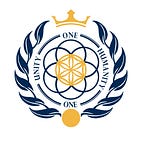Exawizards is Using AI-Enabled Care to Help Treat Japan’s Elderly Population
Japan’s population is rapidly ageing, so the country is looking at new solutions for a multi-faceted problem. In addition to a low birthrate, over one-fifth of Japanese people are now 70 years old or older, as per government data. Moreover, there are not enough people to care for the elderly. By 2025, there will be a shortfall of 340,000 nursing care workers.
One way Japan is helping solve this problem is, under the Abe administration, the country is actively welcoming foreign professionals. Japan is also turning toward a high-tech approach to these social problems. The country is moving to Society 5.0, where ubiquitous sensors will collect information about the world for computer analysis, the government is working with stakeholders to make sure that the Fourth Industrial Revolution generates a high-tech, human-centred society.
Furthermore, Japanese companies are taking on the challenge via innovative solutions. Panasonic is selling robotic beds that convert into wheelchairs. Fujitsu has developed a remote monitoring system to monitor temperature and humidity in addition to movement and sound in the homes of seniors who live alone. Reif, a startup in Fukuoka Prefecture, has built robots that can help stroke victims with their gait and balance. There are many other examples, but one Tokyo startup is combining artificial intelligence technologies with a particular approach to caregiving.
ExaIntelligence, founded in 2016 as Exawizards, is involved in everything from robotics to drug discovery and financial technology. However, their focus on developing a social impact with AI is starting to resonate in Japan’s super-aged society.
Exawizards is employing deep learning to analyze unstructured data related to nursing care. This data comes in the form of sound recordings, videos, texts, and other materials. One of their primary services is Coaching AI, which they detail as “AI-enabled care.” It’s an approach to caregiving training that mixes algorithms with a human touch. The goal is to improve the quality of care for dementia patients in addition to helping new caregivers deliver proper care.
With their Coaching AI system, a camera is set up above the patient’s bed, while caregivers wear camera-equipped smart glasses and microphones; cameras in tablets can also be used. The sound and video are uploaded to a server where Exawizards algorithms evaluate the interactions between caregiver and patient. Then it can make suggestions about how the caregiving can be bettered.
Ko Ishiyama, a former director of Recruit Holdings’ AI lab and the President of Exawizards, explained that they’d heard a lot about evidence-based medicine, but not that much about evidence-based care. So now, they’re exploring how AI can be used in this regard.
Ishiyama added that they used to depend upon veterans to teach newer caregivers how to improve, but now AI can do this.
Exawizards’ bases their approach on Humanitude, a care method developed more than three decades ago by Yves Gineste and Rosette Marescotti. The method emphasizes techniques like speaking quietly to maintain trust and respect. Gentleness is key, and grasping patients’ arms and legs is frowned upon.
Exawizards is also using this AI technique in other areas. Its Choju-kun platform is designed for local healthcare providers and administrators. It can analyze what level of care a patient is receiving, whether it is working and the probability of that patient advancing to a stage at which greater attention is needed. By visualizing the predicted care trends, administrators can better manage nursing care for the ageing population.
The startup is already working with a local care administrator in Fukuoka and has partnered with insurer Sompo Holdings, which runs over 400 nursing homes in Japan. By introducing their technology through these partnerships, Ishiyama thinks that care resources can be managed much better and the 20 trillion yen ($176 billion) cost of nursing care predicted for 2025 can be reduced by 20%.
For details visit Asgardia.Space
